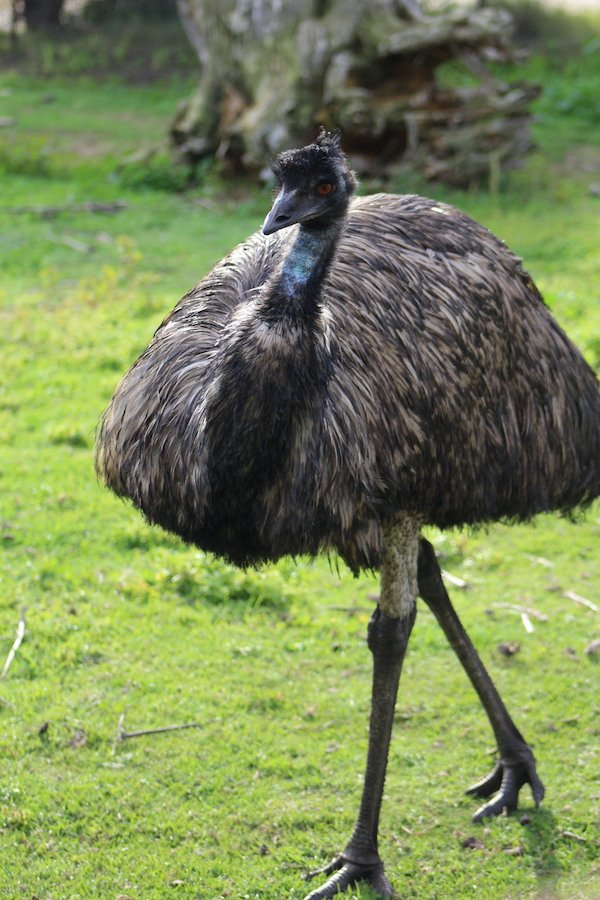Emus can cost anywhere from $500 to $10,000, depending on factors like age, health, and location. These majestic birds have been captivating people with their unique appearance and quirky personalities. For those considering adding emus to their farm or wildlife sanctuary, understanding the cost involved is crucial.
Aside from the initial purchase price, there are ongoing expenses to consider, such as feeding, shelter, and veterinary care. However, the joy and wonder that emus bring can certainly outweigh the costs involved. Whether you’re a seasoned emu enthusiast or a curious newcomer, discovering how much do emus cost is just the beginning of the adventure.
How Much Do Emus Cost: A Comprehensive Guide
Welcome to our detailed guide on the cost of emus! If you’ve ever been curious about owning these unique birds and wondered how much they cost, you’re in the right place. Emus are fascinating creatures that capture the interest of many animal enthusiasts. In this article, we will explore the factors that influence the pricing of emus, the initial expenses of acquiring emus, ongoing costs associated with their care, and where you can find emus for sale. Let’s dive in!
Factors Influencing the Cost of Emus
Before delving into the specific prices, it’s essential to understand the factors that can influence the cost of emus. Several elements can impact the pricing of these birds, such as age, sex, health, breeding history, and geographic location. Let’s break down these factors:
1. Age
The age of an emu can significantly affect its price. Young emus, typically under a year old, are often more expensive than older birds. Young emus have more potential for breeding and can adapt better to new environments, making them more desirable for buyers.
2. Sex
The sex of an emu can also play a role in pricing. Female emus are usually more valuable than males because they are the ones responsible for laying eggs, a crucial factor for breeders. However, a pair of emus (one male and one female) may be priced differently than individual birds.
3. Health
The health of an emu is paramount when determining its cost. Emus that are healthy, well-fed, and free from diseases will command higher prices. Buyers are typically willing to pay more for emus with a clean bill of health to avoid potential veterinary expenses down the line.
4. Breeding History
Emus with a proven breeding history can be more expensive than those without such records. Birds with successful breeding experiences demonstrate their reproductive capabilities, making them more attractive to buyers looking to start or expand their breeding programs.
5. Geographic Location
The cost of emus can vary based on the region or country where they are being sold. Factors such as supply and demand, local regulations, and transportation costs can all influence the overall price of emus in a particular area.
Initial Expenses of Acquiring Emus
When considering purchasing emus, it’s crucial to account for the initial expenses involved. These costs can include the price of the birds themselves, housing and fencing, feed and supplements, veterinary care, and licensing or permits. Let’s break down these expenses:
1. Price of Emus
The cost of emus can vary widely based on the factors mentioned earlier. On average, a single emu can range from $500 to $2,000 or more, depending on its age, sex, and health. It’s essential to research and compare prices from different sellers to find birds that fit your budget and requirements.
2. Housing and Fencing
Emus require adequate housing and fencing to ensure their safety and well-being. Building a suitable enclosure for emus can cost anywhere from a few hundred to several thousand dollars, depending on the size and materials used. Additionally, make sure the enclosure is secure to prevent escape and protect the birds from predators.
3. Feed and Supplements
Emus have specific dietary requirements that need to be met for their optimal health. The cost of feed and supplements for emus can add up over time, so budgeting for this ongoing expense is essential. Emus typically eat a diet of grains, fruits, vegetables, and commercial emu feed.
4. Veterinary Care
Regular veterinary check-ups and preventative care are essential for maintaining the health of your emus. Veterinary expenses can include vaccinations, deworming, and emergency medical treatments. It’s wise to set aside a budget for potential medical costs to ensure the well-being of your birds.
5. Licensing or Permits
Depending on your location, you may need to obtain permits or licenses to legally own and raise emus. The cost of obtaining these permits can vary, so be sure to research the requirements in your area and factor in any associated fees when budgeting for your emus.
Ongoing Costs Associated with Emu Care
After acquiring emus, it’s important to consider the ongoing costs associated with their care. These expenses can include feed and supplements, veterinary care, equipment maintenance, utilities, and other miscellaneous costs. Let’s explore these ongoing expenses:
1. Feed and Supplements
As mentioned earlier, feed and supplements are ongoing costs for emu owners. You will need to budget for regular purchases of emu feed, as well as any additional supplements or treats. Monitoring the nutritional needs of your emus is crucial for their overall health and well-being.
2. Veterinary Care
Regular veterinary care is essential for preventing and addressing health issues in emus. Budget for routine check-ups, vaccinations, and any necessary medical treatments. It’s advisable to establish a relationship with an experienced avian veterinarian to ensure the best care for your birds.
3. Equipment Maintenance
Maintaining enclosures, fencing, and other equipment for your emus is an ongoing responsibility. Budget for repairs, replacements, and upgrades as needed to ensure a safe and comfortable environment for your birds. Regular maintenance can help prevent costly issues in the future.
4. Utilities
Emus require access to clean water, shelter, and proper lighting. Budget for utility costs associated with providing these essentials for your birds. Monitoring water quality and temperature is essential for keeping your emus healthy and thriving.
5. Miscellaneous Costs
In addition to the above expenses, there may be other miscellaneous costs associated with owning emus. These can include grooming supplies, nesting materials, pest control products, and emergency funds for unexpected expenses. Planning ahead and budgeting for these miscellaneous costs can help you be prepared for any situation.
Where to Find Emus for Sale
Now that you know about the costs associated with owning emus, you may be wondering where you can find these fascinating birds for sale. There are several options for purchasing emus, including reputable breeders, farms, animal auctions, and online marketplaces. Here are some tips for finding emus for sale:
1. Reputable Breeders
Reputable emu breeders can provide you with healthy, well-cared-for birds that meet your specifications. Research breeders in your area or online, read reviews, and visit their facilities if possible to ensure they maintain high standards of care for their emus.
2. Farms and Animal Auctions
Local farms and animal auctions may offer emus for sale at competitive prices. Attend farm auctions or visit nearby farms to inquire about purchasing emus. Make sure to assess the conditions in which the birds are kept before making a purchase to ensure their well-being.
3. Online Marketplaces
Online marketplaces and classified websites can also be great resources for finding emus for sale. Websites like Craigslist, Facebook Marketplace, and specialty livestock forums may have listings for emus in your area. Exercise caution when buying online and verify the credibility of the seller before making a purchase.
Remember to consider the factors that influence the cost of emus, the initial expenses of acquiring them, ongoing costs associated with their care, and where to find emus for sale when planning to bring these unique birds into your life. Emus can be delightful and rewarding animals to own, but it’s essential to be prepared for the responsibilities and costs that come with their care. We hope this guide has been helpful in answering your question: How much do emus cost?
Happy emu-keeping!
big Emu laying egg #shorts #viral #shortsvideo #egg #big
Frequently Asked Questions
What factors influence the cost of purchasing an emu?
The cost of purchasing an emu can vary based on factors such as the age of the emu, its health condition, whether it’s a breeder or pet quality, and the reputation of the seller or breeder.
Do emus come with additional expenses beyond the initial purchase price?
Yes, owning an emu comes with additional expenses such as feeding costs, veterinary care, shelter maintenance, and other supplies required to care for the emu properly. It’s essential to consider these ongoing expenses before buying an emu.
Are there differences in prices for different emu breeds?
Yes, prices can vary based on the specific breed of emu. Some breeds may be rarer or have specific desirable traits, which can affect their price compared to more common emu breeds.
What is the average price range for purchasing an emu?
The average price for purchasing an emu can range from a few hundred to a few thousand dollars, depending on the factors mentioned earlier. It’s essential to shop around and compare prices from different sellers or breeders to find a suitable emu within your budget.
Final Thoughts
In conclusion, the cost of emus can vary depending on factors such as age, size, and where you purchase them. Prices typically range from $500 to $2,000 per bird. It is important to consider additional expenses, including housing, feeding, and veterinary care. Researching and budgeting for these costs is crucial when determining how much do emus cost.




